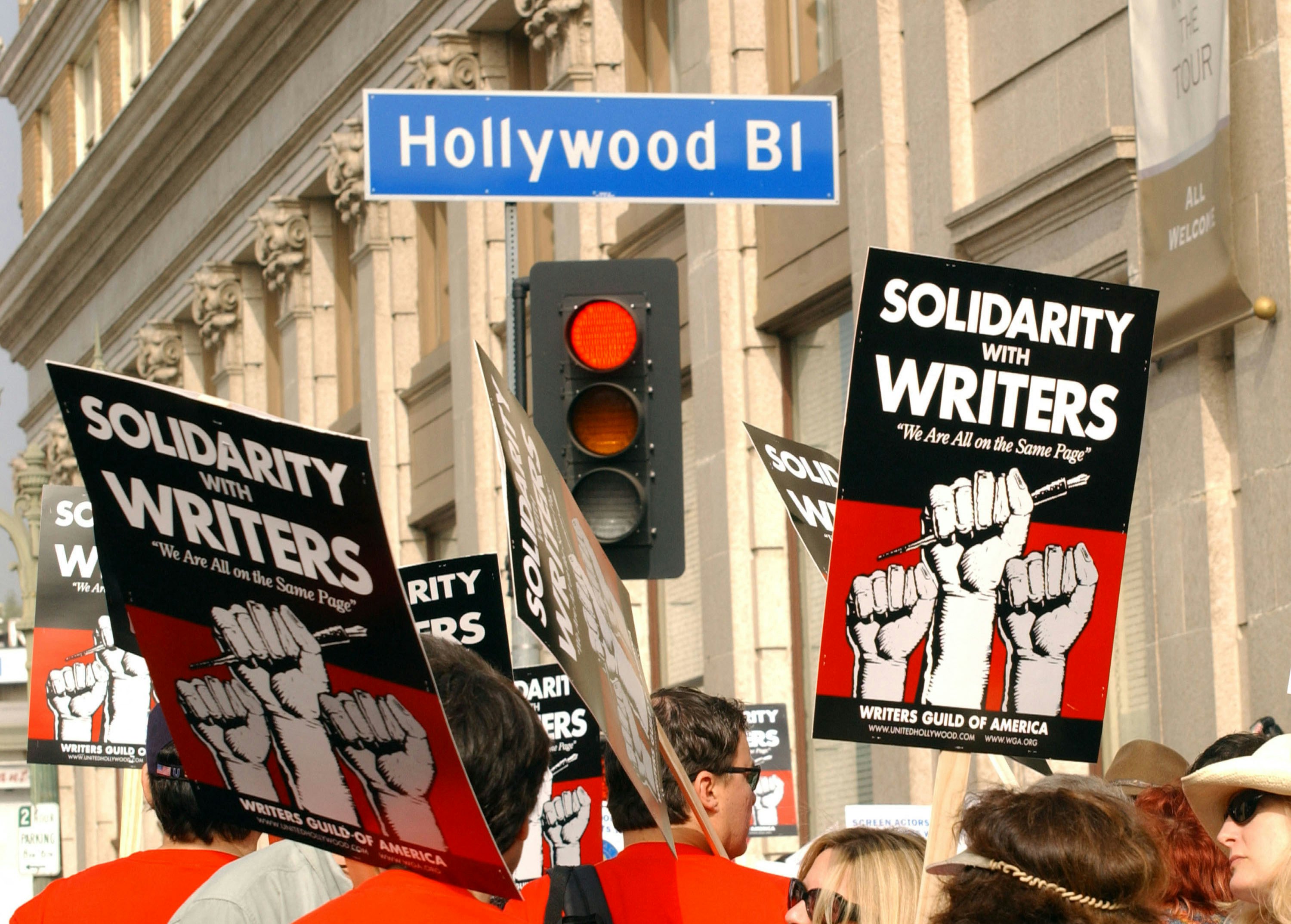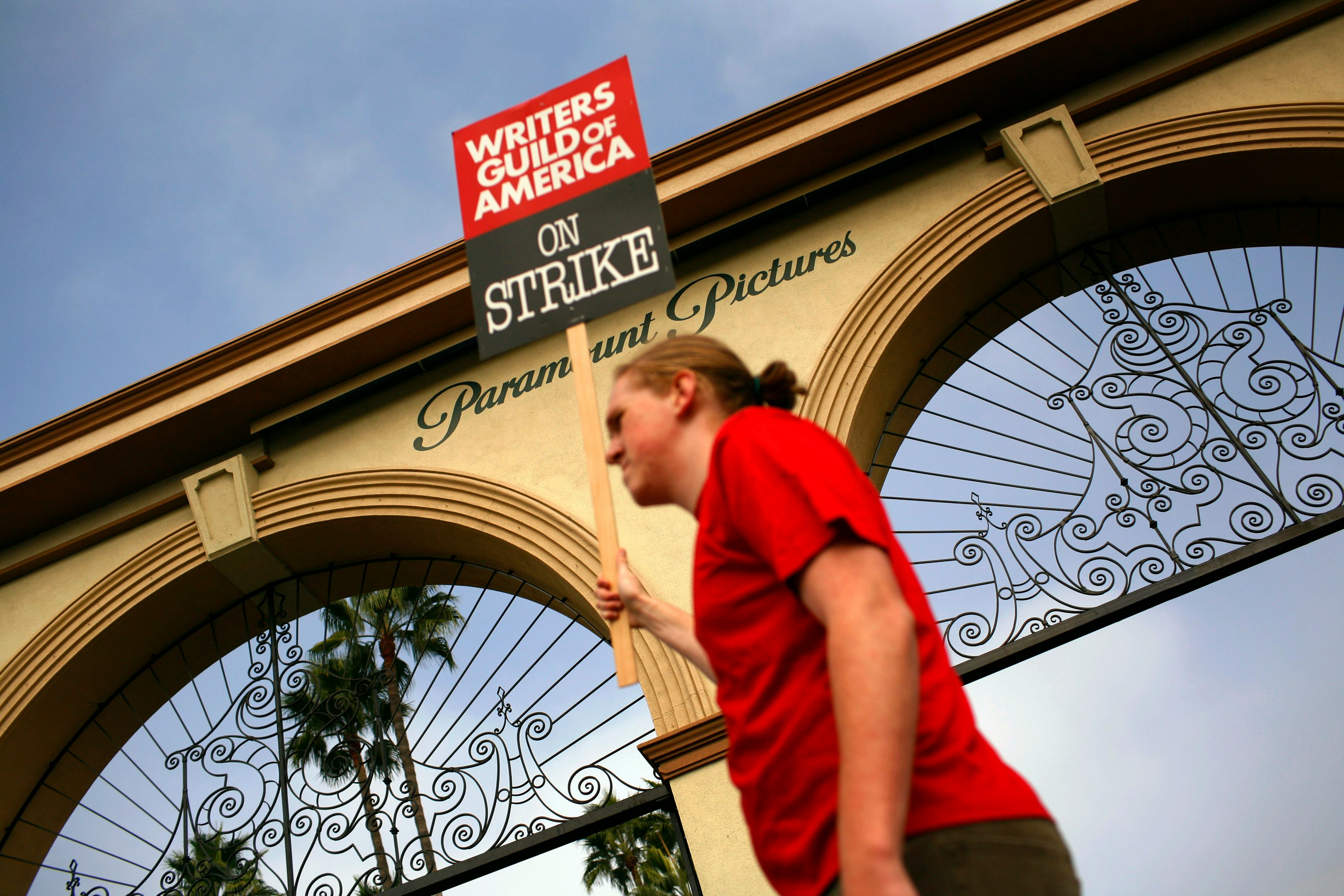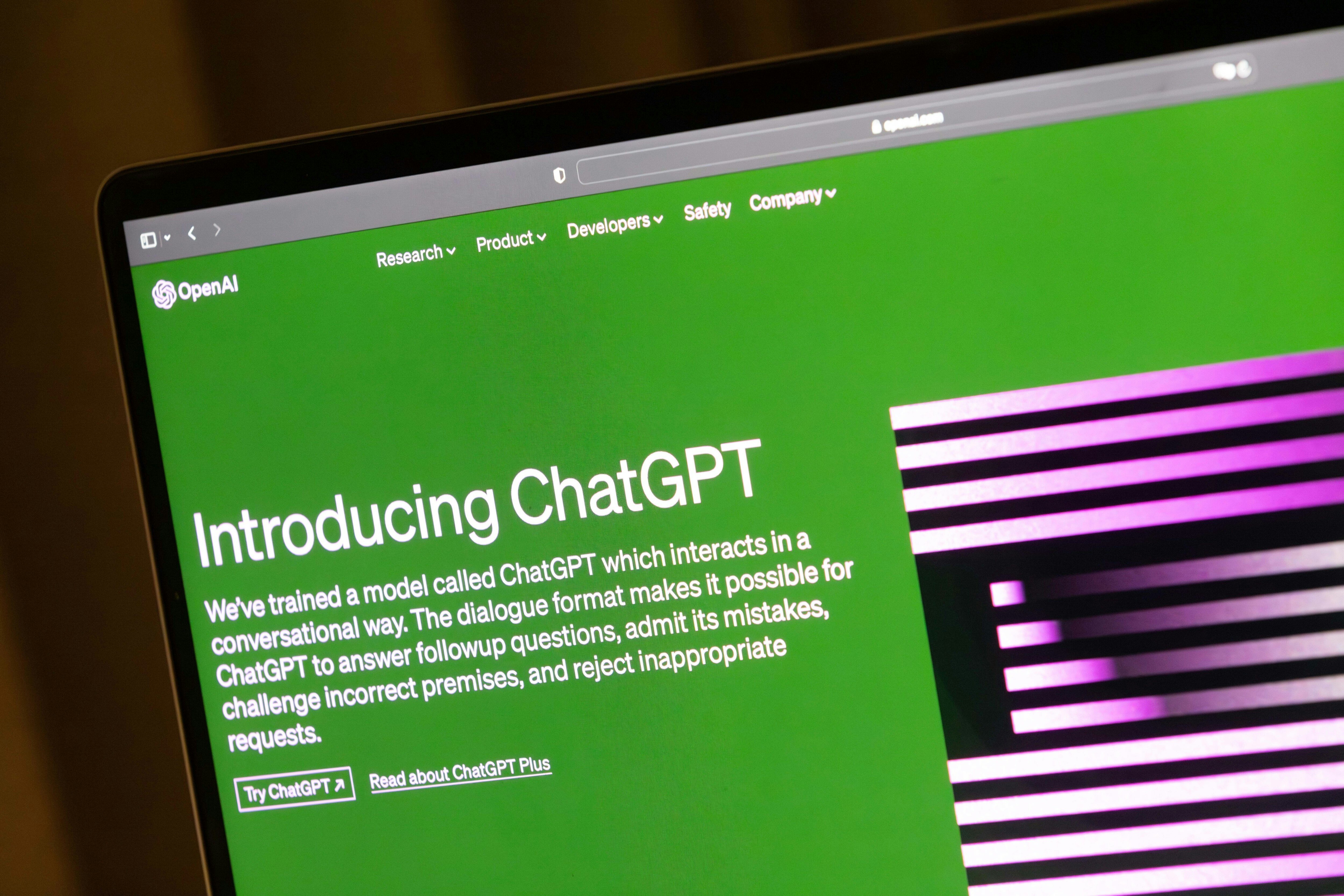
The power of artificial intelligence to encroach human labor is a not-so-speculative premise writers have explored for decades. You’ve seen it in movies, from 2001: A Space Odyssey, to WALL-E, to Her. But in 2023, it is movie and TV writers themselves who are fighting for survival from the machines.
On the evening of May 1, the Writers Guild of America West called a strike that went into effect at 12:01 a.m. on Tuesday, May 2. Of the proposals the Hollywood writers union put forward to the Alliance of Motion Picture and Television Producers (who represent studios), one sought protections against the rapid, ongoing growth of AI.
The WGA’s proposal asked for the regulated use of AI on MBA (minimum basic agreement) projects. AI isn’t banned outright, but the language used by the WGA ensures its use does not come at the expense of a human writer. “AI can’t write or rewrite literary material; can’t be used as source material; and MBA-covered material can’t be used to train AI,” the WGA proposes. AI is also prohibited from being considered the author of a project and will not share credit.
Chillingly, the AMPTP rejected the proposal. Instead, it countered with “offering annual meetings to discuss advancements in technology,” a vaguely-worded solution to a complex problem. As author Mark Harris sarcastically translated on Twitter: “We're going to leave open the possibility of replacing you with machines, and once a year, we’ll let you know how that's going!”

The brunt of the 2023 negotiations between the WGA and the AMPTP hinge on addressing shrunk wages wrought by streaming economics; a piece published by Vanity Fair covers how the streaming boom has burst, causing a money drought for big players like Netflix, Disney, and Warner Bros. Discovery, which count billions of dollars in losses. Unrelated: In 2022, the CEOs of the eight biggest studios had a combined annual salary of $773 million.
But for writers, AI is as much a labor crisis as it is an existential one. With widespread belt-tightening in Hollywood, studios are becoming drawn to generative AI (made popular through chatbots like ChatGPT) that only need a prompt before automating a readable piece of work. For studios seeking to ease debts, AI is too appealing in terms of cost-cutting. After all, why pay human writers wages and healthcare when machines don’t need them?
Writers critically argue AI lacks the humanity to have any real creative inspiration, resulting in substandard and uninteresting work. As of now, the technology wholly relies on what it’s been fed, and the writing that software like ChatGPT spit out barely passes as a high school essay. As Javier Grillo-Marxuach, a writer on shows like Lost, told The New York Times: “Artists look at everything ever created and find a flash of newness... What the machine is doing is recombining.”
But technology evolves quickly, which is why writers are ringing the alarm bells now. In just a few short years, streaming has made professional screenwriting an impossible field to make a living with the disappearance of residuals (usually accounted for in reruns of traditional television). AI is an especially gloomy case of shutting writers out entirely. It’s like the folk tale of John Henry, if John Henry had a Macbook with Final Draft instead of a sledgehammer.
AI has already crept into filmmaking, predictably in the realm of visual effects; the visuals of blockbusters like Gemini Man and Avengers: Endgame were made through AI. But the 2021 documentary Roadrunner, about the late chef and author Anthony Bourdain, now feels like a prelude to how artificial intelligence — which the filmmakers utilized to mimic Bourdain’s voice for a 45-second soundbite — can and will raise ethical concerns.

For writers, AI is more of a matter of survival. The industry is already cutting costs by reducing writer’s rooms to “mini-rooms” that allow studios to shirk on fees. AI’s power to push writers out completely for cheaper automation will not only doom the profession, but leave nobody left to script the next big thing that moves audiences at their core. Chatbots do not write movies like Everything Everywhere All at Once, no matter how many A24 and Shaw Brothers scripts you feed into it.
Amid this year’s negotiations, technology has cast a shadow that’s created a potent air of dread for anyone looking to have a future in Hollywood. Technology may have the power to wipe writers out completely, and thus no movies and TV worth watching. We’ll have to read books instead.
Oh wait. AI is coming for that, too.







